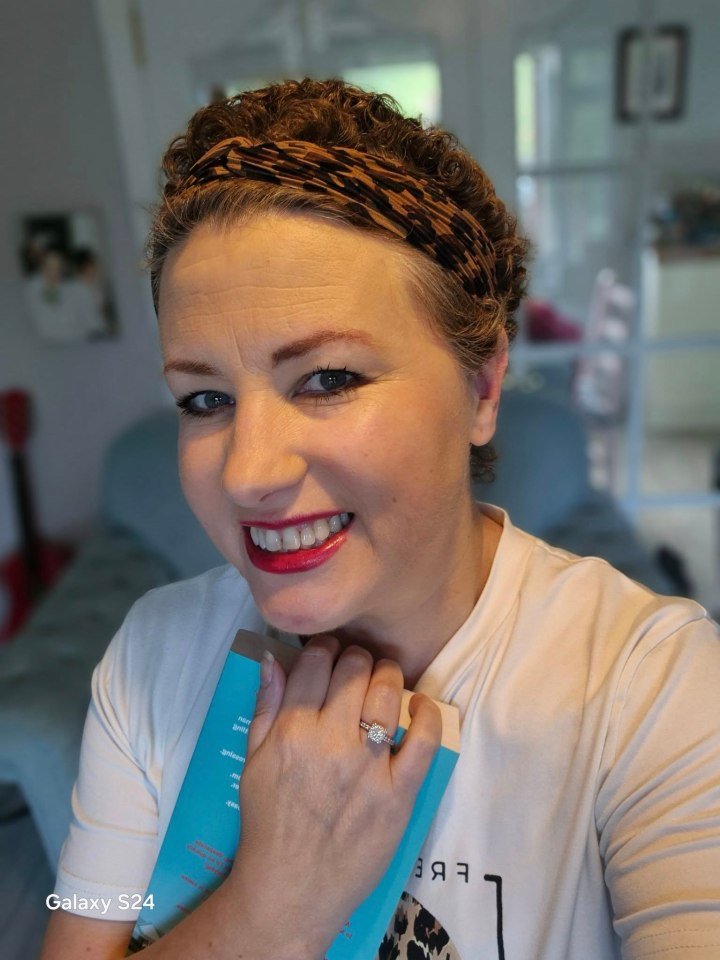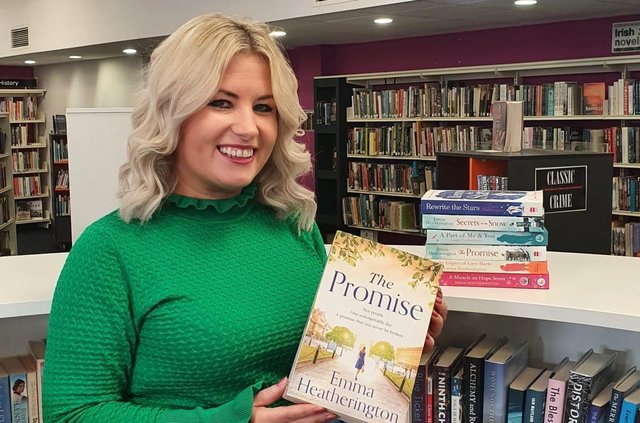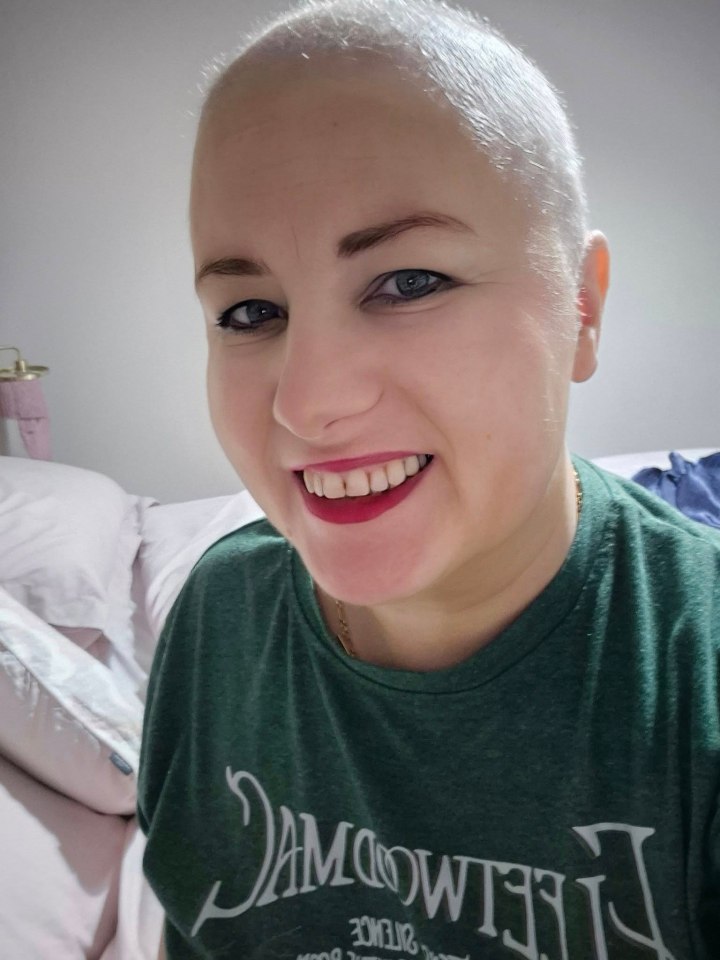WHEN mum-of-five Emma Heatherington start to suffer aches and pains, night sweats and felt exhausted, she blamed it on ‘getting older’.
At 47, she just assumed it was the early stages of menopause, as she hadn’t been feeling herself for some time. But unbeknownst to Emma, something far more sinister was going on – a silent disease was slowly “eating away” at her, leaving her with holes in her skull, shoulders and breastbone.
In 2024, Emma was riding high with her career as an author and loving life as a parent.
“I was flying,” she tells Sun Health. “Career wise, I was as high as I had ever been.
“It was my first book with Penguin Random House and I was off to the best start.
“I thought, ‘This is it, this is going to be my year’. All my dreams were coming true.”
But in February, things took a turn.
“Everything started to go terribly wrong and the rug was pulled from under my feet in the most horrific way,” Emma, from Donaghmore in Co Tyrone, Northern Ireland, says.
The mum had started to notice she was feeling more tired than normal, and was getting dizzy at strange times.
She was also hearing “clicking noises”, sweating at night, and generally felt unwell.
Emma assumed these symptoms were simply part of getting older; most women go through menopause aged 45 to 55, with perimenopause (the transitional phase leading up to menopause) typically beginning in the early 40s.
Symptoms are similar, including hot flushes, night sweats, vaginal dryness, anxiety and low mood, headaches, join pain and weight gain.
But that wasn’t what Emma was going through. She was actually diagnosed with incurable myeloma – a cancer that affects the blood and bone marrow and kills 3,000 people every year.
There are around 6,240 new cases every year in the UK, and 3,098 people lose their lives.
By the time Emma’s cancer was caught, she had a broken sternum as well as holes, known as lesions, in her skull, breastbone and shoulders.
“It was a comedown and a shock to go from utter elation to absolute despair,” she says.
“I thought that perhaps everything I was going through could be symptoms of perimenopause – achy bones, tiredness, night sweats.
“But then I had quite severe dizzy spells and a heavy head, a clicking bone – which was actually my sternum fracturing.
“While individually, I could think of reasons why these symptoms were happening, it wasn’t until a doctor put the pieces together that it led to a cancer diagnosis.
“If I’d known more about myeloma before, I could have perhaps flagged all these things collectively and been given answers sooner.”
When I saw my shiny bald head, I couldn’t believe it. I thought, ‘This is cancer – this is real
Emma Heatherington
After a particularly bad dizzy spell sent Emma to A&E, she was given a CT scan.
Four weeks later – which she describes as being “the longest four weeks of my life” – a hematologist delivered the shocking news.
Emma, now 49, began chemotherapy before being referred to Belfast City Hospital for a STEM transplant in November 2024.
She says: “A year or more this was going on inside me but I had kept brushing it off.”
To cope with her hair loss, Emma shaved her head with her children, trying to make it feel spontaneous and fun.
But she says when she was finally bald, it was a frightening reality.
“The morning my hair came out on the pillow – what was left of it – I had convinced myself it was the least of my worries,” Emma says.
“When I saw my shiny bald head, I couldn’t believe it.
“I thought, ‘This is cancer – this is real’.”
Emma had to spend four weeks in isolation, only allowed to see her fiancee Jim McKee.
“It was testing,” she says.
But eventually, the hospital became like a place of sanctuary because she hoped and believed in the process.
The doctors and nurses also chatted with her, telling her jokes and helping to take away her loneliness.
The day her book, Maybe Next Christmas, was released, Emma gave an interview live from her hospital bed.
“The minute the interview was over, the doors opened and the stem cells were brought in,” she says.
Even when she was allowed home, after four weeks, Emma was still very sick and had a high risk of infection and sepsis – an extreme reaction to an infection which claims the lives of five people every hour in the UK.
She has been hospitalised again twice since, after picking up flu viruses.
‘I will never be out of the woods’
“There were days when I couldn’t lift a fork up to my mouth, I was so tired,” Emma says.
“I couldn’t do school runs, make dinner or go grocery shopping but everybody stepped in.”
Emma, who takes a chemo tablet every day at home to keep the myeloma under control, has her blood monitored every month and admits she will never be completely “cured”.
“I live month to month,” she adds. “I know I will never be out of the woods.
“There is no cure for myeloma at the minute but there is hope a cure will be found soon.
“New treatment plans are coming out all the time
“I have known people who have not reached where I am along the way and that frightens me. I’m sad for their family first and foremost.”
The subtle signs of myeloma
THERE are over 33,000 people with myeloma in the UK.
Despite being the third most common type of blood cancer, myeloma is frequently missed, as its symptoms are vague and often linked to general ageing or minor conditions.
Symptoms of myeloma may include:
- Back pain
- Other bone pain (often in your hips, shoulders or ribs)
- Easily broken bones (fractures)
- Feeling very tired for no reason
- Recurring infection
- Muscle weakness
- Shortness of breath
- Headaches
- Feeling very thirsty and needing to pee more often than usual
- Losing weight without trying
- Confusion or drowsiness
Sometimes myeloma does not cause symptoms at first. You may find out you have it after a blood test for another reason.
Despite her positive outlook, life remains tough.
“I live with severe fatigue – which I never had before,” Emma says.
“I had never broken a bone in my life and now there are holes in my bones.
“My life has changed dramatically and I could go into a very dark place mentally.
“But from strangers, friends and family, the kindness has been phenomenal and I’m lucky to have a loving family.”
Don’t feel silly or reluctant to go to the GP. Don’t rule it out, just in case
Emma Heatherington
She wants to share her story to help others spot the signs of myeloma as soon as possible, as early diagnosis saves lives.
She is supporting Myeloma UK’s Know the Warning Signs campaign.
While bone pain is the most common symptom, other signs include: fatigue, shortness of breath, muscle weakness, headaches, feeling thirsty and needing to pee more often than usual, and losing weight without trying.
Emma says: “My advice is to write down everything you can think of when you’re feeling out of sorts.
“Just pause and ask yourself, ‘Is there anything else going on or are there other small things?’
“It’s human nature to make excuses and brush it away ‘for now’.
“But all these small,everyday things you might ignore on their own could add up to a myeloma diagnosis.
“Don’t feel silly or reluctant to go to the GP. Don’t rule it out, just in case.”
Emma’s book Every Christmas Eve, published by Penguin Random House, will be released on October 23.















